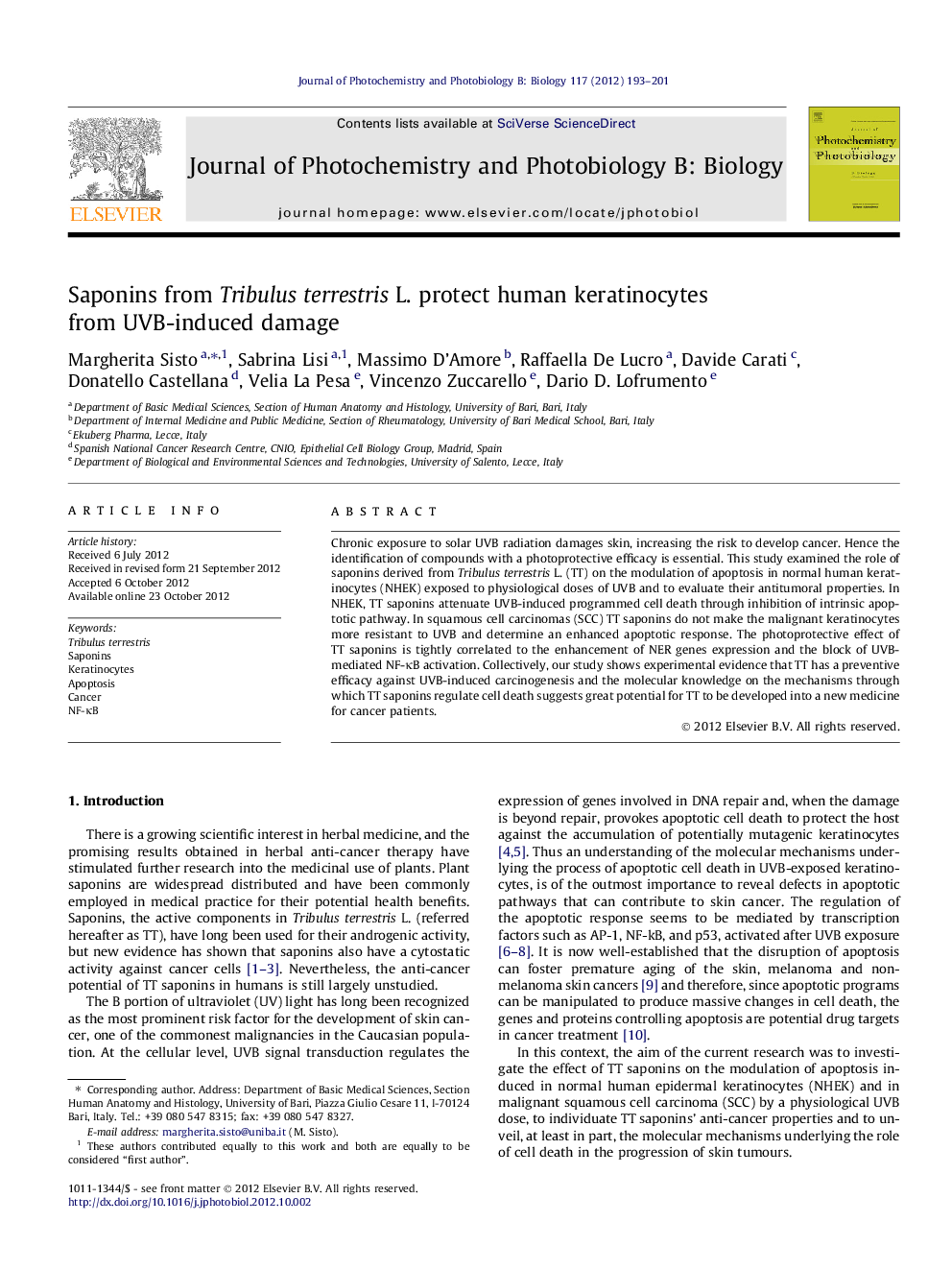| کد مقاله | کد نشریه | سال انتشار | مقاله انگلیسی | نسخه تمام متن |
|---|---|---|---|---|
| 30672 | 44495 | 2012 | 9 صفحه PDF | دانلود رایگان |

Chronic exposure to solar UVB radiation damages skin, increasing the risk to develop cancer. Hence the identification of compounds with a photoprotective efficacy is essential. This study examined the role of saponins derived from Tribulus terrestris L. (TT) on the modulation of apoptosis in normal human keratinocytes (NHEK) exposed to physiological doses of UVB and to evaluate their antitumoral properties. In NHEK, TT saponins attenuate UVB-induced programmed cell death through inhibition of intrinsic apoptotic pathway. In squamous cell carcinomas (SCC) TT saponins do not make the malignant keratinocytes more resistant to UVB and determine an enhanced apoptotic response. The photoprotective effect of TT saponins is tightly correlated to the enhancement of NER genes expression and the block of UVB-mediated NF-κB activation. Collectively, our study shows experimental evidence that TT has a preventive efficacy against UVB-induced carcinogenesis and the molecular knowledge on the mechanisms through which TT saponins regulate cell death suggests great potential for TT to be developed into a new medicine for cancer patients.
► The photoprotective role of Tribulus terrestris L. was studied upon UVB irradiation.
► In squamous cell carcinomas Tribulus determine an enhanced apoptotic response.
► The photoprotective effect is correlated to the enhancement of NER genes expression.
► The antitumoral effect occurs through the block of UVB-mediated NF-κB activation.
Journal: Journal of Photochemistry and Photobiology B: Biology - Volume 117, 5 December 2012, Pages 193–201